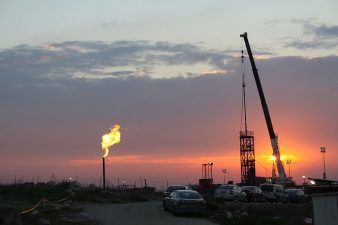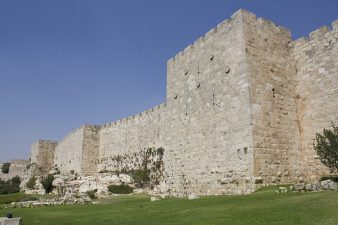 In preparation for Israeli election day, we present a series of posts with a summary of the environmental positions of the parties running for the Knesset on the following topics: Open Areas and Beaches, Green Energy, Radiation and Global Warming, Sustainable Development, Recycling, Water, and Air & Industrial Pollution and Enforcement.
In preparation for Israeli election day, we present a series of posts with a summary of the environmental positions of the parties running for the Knesset on the following topics: Open Areas and Beaches, Green Energy, Radiation and Global Warming, Sustainable Development, Recycling, Water, and Air & Industrial Pollution and Enforcement.
WATER
Green Movement – Meimad
1. The use of economic instruments and water prices as a tool that will allow basic consumption, but will encourage conservation by the various consumers;
2. Production of large amounts of high quality desalinated water from sea water and brackish water. It must be ensured that the desalination facilities will be based on renewable energy, and to act to reduce the emissions of greenhouse gases that are associated with the process;
3. Increasing the use of reclaimed and gray water;
4. Increasing the enforcement significantly against the various water polluters, both by increasing the manpower and the number of the various sewage samples, and by toughening the actual punishments. The demands of the Water Authority to require the Nature and Parks Authority to pay for water allocated to nature should be revoked, because nature has a basic right to exist;
5. Organizational changes in the authorities that deal with water issues in Israel in a way that will bring to a consolidation of authority in the hands of the Water Authority.
6. Research and Education – an appropriate budget must continue to be allocated for the performance of up-to-date scientific studies and strengthen the connection between the Authority and academic research institutions, and fund the training of water experts. Additionally, resources should be invested in education for water conservation and appropriate outreach.
The Green Party
1. Conservation, purification and clever planning of the systems for consuming and producing water;
2. Reducing the pumping of water through reducing wasteful agricultural crops, improving the efficiency of distribution, recycling and desalinating water in order to protect the streams, the Kinneret and the groundwater reservoirs;
3. Alternative use of floodwaters and recycled water: increasing the level of the purification of reclaimed sewage and capturing floodwaters. Widespread use can be made of saline/brackish water in the residential and industrial sectors, instead of using valuable sweet water;
Hadash
1. Protection of the water sources, the sea and streams from industrial and other pollution;
2. Ceasing the privatization of the water services;
Israel Betenu
Vigorous activity to save the Dead Sea and its surroundings, including a solution to the water crisis in our region.
Israel Hazaka
1. Support for existing plans to rehabilitate streams, soil and groundwater contaminated with fuel;
2. Ceasing the construction of gasoline stations that might pollute groundwater and soil;
3. Allocating resources for a national plan to prevent the pollution of the sea with oil (petroleum);
4. Toughening the punishment for polluters of water sources, streams and sea, and criminal punishment for negligence that caused harm.
5. Reevaluating the continued depletion of potable water sources for the purpose of producing mineral waters, in cases where there is a concern of damage to nature and landscape;
6. In border areas of the Arava, the Golan, and upper Galilee where there is no supply of reclaimed water, the State should initiate a change in the structure of the agricultural market which will ensure an honorable livelihood with minimal exploitation of potable water;
7. Promulgation of regulations that will require the installation of systems for the reuse of gray water in residential buildings and new public buildings. Reuse of reclaimed sewage for agriculture and industrial uses; to act to desalinate reclaimed sewage to drinking water quality for the purpose of recharging the coastal aquifer; increasing the supply of water by desalinating saline water;
8. Allocating resources and encouraging those who deal in the development of technologies that improve the processes for producing potable water, its treatment, and its recycling for secondary uses.
Kadima
1. Comprehensive design of national infrastructures, among other in the field of water supply and the protection of its quality.
2. Safeguarding the status and professionalism of the planning system;
3. Increasing the desalination of sea water based on the national needs including a water allotment for the rehabilitation of Israel’s streams.
Labor
Establishing a sustainable water market based on demand-side management, conservation and the rehabilitation of contaminated wells and on a massive allocation of resources to desalination, improvement of drinking water quality provided to the public, rehabilitation of the streams and returning them to the public as a public asset and a halt to the release of sewage to the sea and to prevent pollution of the sea from land-based sources.
New Movement – Meretz
1. Establishing a system wide approach to the sources of water, taking into account all of the uses of water, including nature reserves, streams and spring conservation;
2. Ensuring equality in the distribution of access to water in general, and to high quality water in particular. Correction of the discrimination against the Arab communities in the allocation of water for agriculture;
3. Development of alternative water resources, e.g. recycling of sewage water and desalination;
4. Initiate regulations that will enable and encourage the citizen to collect rain water and recycle gray water.
SHAS
Passing laws that are meant to protect nature, water sources and the beaches of the sea.
The Likud party does not refer to the topic of water in its platform.
This summary was compiled in Hebrew ::Bar Ilan Environmental Clinic :: Chayim Usviva :: Translated by the greenprophet.com team.
photo::Creative Commons




2 thoughts on “Israel's Elections: Platforms on Water”
Comments are closed.